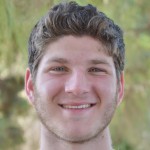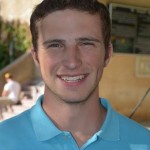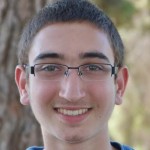NCSY Kollel is known for combining intense Torah learning, serious sports and a full schedule of trips all around Israel. That’s during “normal” summers. This year the situation in Israel was anything but normal. As a result, the boys who came on Kollel added volunteering and a very deep understanding of achdut, the unity of Am Yisrael.
“The situation in Israel this summer really brought us all together,” says Yehoshua Naor, 16, who goes to the Torah Academy of Bergen County and lives in Teaneck, New Jersey.
“We were part of a group of guys who were learning and davening for one goal: the safe return of the soldiers. This was a very special experience that no one else can possibly have had,” he says.The teens all appreciated the great shiurim. “My friends thought this would just be a continuation of school,” says Phillip Dolitsky, 16, a student at Kohelet Yeshiva High School in Philadelphia, Pennsylvania. “But it’s very different,” he says, “because there are no tests and no pressure. You go at your own pace.”
During the fighting in Gaza they joined the girls from the Michlelet program to make packages to send to soldiers in Gaza. This included learning how to make tzitziot to send. Every package contained handwritten letters from NCSYers expressing their gratitude.
What did They Miss?
Did the Kollel guys miss anything by starting in Hispin in the Golan Heights rather than in Bet Meir near Jerusalem?
“Probably the most important thing we missed was the access to Jerusalem,” says Adir Pinchot, 21, a Kollel madrich.
“But we got to see parts of the north we would never have seen otherwise. This includes getting to spend quality time in Tiberias and Tsefat,” he says. “And when the situation calmed down, we were able to come to Bet Meir.”Zev Miller, 20, says that this is his fourth summer as a Kollel madrich. “I never jumped off a bridge before this summer,” he says, referring to the day they went bungee jumping.
Complaints?
Both Pinchot and Miller agree that convincing the guys that the summer program would basically be the same was a hard sell at first. “But once they bought into being in Hispin in the Golan Heights, it was fine,” Pinchot says. “Really the only complaint about Hispin is that the guys didn’t have anywhere to play hockey. I guess that indicates how smooth their transition was.”
“I thought all the changes might spoil my experience,” says Naor. “But the fact is none of the groups here this summer could do everything that was planned ahead of time,” he says. “Somehow this brought us closer together, because we were learning and davening for one very special goal: the soldiers in Gaza. We hoped and prayed that everything would turn out okay,” he says. “This is a special experience that other groups during other summers couldn’t possibly have.”
“On one hand we were here when the country was in chaos,” says Micah Gill, 16, from Los Angeles, California, and a student at Shalhevet High School. “But we shared a deep passion for the well-being of all the soldiers,” he says. “It was an amazing feeling.”
Why did they come on Kollel?
Asher Gritz, 17, a student at the Donna Klein Jewish Academy in Boca Raton, Florida: “I wanted to be inspired, grow and have a jolt in my Judaism. I’m using Kollel as a springboard to do this.”
“The rabbanim explained that this may be a tough time to have a program like Kollel,” Gritz says.
“They gave me a whole new understanding about how important it is to learn and daven for the safety of Israel and Jews everywhere.”Yehoshua Naor: “Kollel isn’t just about touring Israel. The experience includes learning and different ways to connect to Judaism. Overall it’s a good mix of touring, learning and sports.”
“A lot of my friends were surprised that I came on Kollel,” Naor continues. “They don’t see me as the kind of guy who is willing to learn five to six hours a day. We may have a bit less touring, but I’m going to be able to find the true meaning of why people come to Eretz Yisrael. We have a chance to discover who we really are in life,” he says.
One of the Kollel traditions is a kumsitz at the Kotel at the end of Tisha b’Av. “While it is always special, there is no doubt that this year’s singing had even greater importance,” Kollel Director Rabbi Moshe Benovitz wrote to the parents, many of whom “participated” in the kumsitz which was streamed live.
“The kumsitz was such a strong expression of unity, vitality and prayer. . . . It’s hard to imagine that any of the NCSYers or staff will soon forget this Tisha b’Av,” he wrote.



